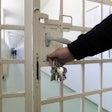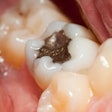
Unless you avoid the daily news, television, and social media, you are aware of the increasing number of violent crimes occurring in the U.S. Although some areas are hit harder than others, no community or business is safe from violent crimes.
Below are considerations for handling potentially violent situations as well as tips on how to dismiss a potentially violent patient.
Considerations for domestic violence
 Dr. James V. Anderson
Dr. James V. AndersonOne important but seldom discussed facet of this conversation is domestic violence. Telltale signs of domestic violence should not be ignored.
Some telltale signs that someone is a victim of domestic violence include the following:
- Bruises or marks on the face, lips, arms, and neck areas
- Wearing long sleeves or sunglasses to cover injuries
- Distracted or not paying attention, jumpy, or anxious
- Fatigue or errors in judgment
- The spouse or significant other keeps calling the office or spends time waiting outside the office
- Unusual gifts, such as flowers or stuffed animals, are delivered when it isn't a birthday or special occasion
- An individual is late for work or is increasingly absent without notice
- They don't want to go home at the end of the day
It's not just patients who may be victims of domestic violence, but your team members may be victims too. If a violent perpetrator is having or recently had an intimate relationship with one of your team members, it can put your practice and patients at risk if the offender shows up at the office to intimidate and threaten the employee with weapons.
Domestic violence is a sensitive subject, and reporting suspected abuse is a serious matter for dental professionals. Dentists, dental hygienists, and dental assistants can play an essential role in stopping the cycle of abuse.
Per state and federal laws and each state's dental board, consistent protocols and best practice policies should be reviewed yearly. Contact your liability insurance holder and your state dental board for more information.
Considerations for active shooters
None of us think of our dental practice as the scene of a shooting, but there have been several incidents in the last few years. Dentists and their teams are no strangers to the occasional difficult patient, but we have seldom thought our lives would end in treating one.
You can take certain actions now to prepare your practice in case of violence:
- Perform active shooter training.
- Locate exits and potential hiding places ahead of time.
- Put protocols in place about when and how to contact emergency responders.
- Install a panic button as a code red alert for all staff to exit out a back door.
- Install security cameras that are recording during practice hours.
- Lock exterior doors so that someone cannot enter in through a back door unnoticed.
- Have a locking door between the reception area and the entrance to the treatment rooms.
- Report any suspicious behavior of people who are loitering outside the practice or in the rear parking area.
- Build a panic room in the back office with a metal door and secure deadbolts.
Should your practice become the location of a shooting, there are additional steps you can take, including the following:
- Place barriers between the shooter and other people.
- Find weapons of opportunity to defend yourself and others against an attacker.
- Call 911. Do not assume others have called, and continue to call if the signal is busy.
- Give important information, such as the name of the shooter, a description, the location, and the number/type of weapons involved.
Considerations for terminating a patient relationship
It's always difficult to terminate a troublesome patient from the practice. Before you end a professional relationship with a patient, you must be satisfied that your decision is fair and that you are able to justify your decision. Take steps to ensure that arrangements are made promptly for the continued care of the patient.
When terminating a relationship, some patients may become angry and may retaliate with threats given over the phone and in person. It's important to develop the skills to identify the difference between problematic behavior that can be managed within the practice and unacceptable behavior that is a red flag. Unacceptable behavior must not be tolerated and should possibly be reported to local law enforcement.
Never hesitate to seek advice from your professional indemnity organization for proper legal advice and precautionary instructions. Your liability insurer can advise you on what to write to a patient to inform them of your decision to terminate care and the reasons for your decision. State guidelines can be obtained from your local dental society or the ADA.
Though violence may never happen, it is naive and dangerous to think that violence will never occur in a practice. Let's be safe, not sorry.
Dr. James V. Anderson is a practicing dentist in Syracuse, UT, and is the CEO and founder of eAssist Dental Solutions. He can be reached via email.
The comments and observations expressed herein do not necessarily reflect the opinions of DrBicuspid.com, nor should they be construed as an endorsement or admonishment of any particular idea, vendor, or organization.



















